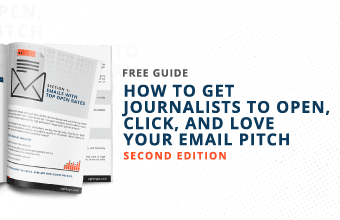The Republican’s use of President Biden’s “garbage” comments couldn’t have come at a worse time for Vice President Kamala Harris.
It overshadowed her highly regarded “final message,” as defined by pundits, even though it was hardly her “final message,” because there was a week left for her to campaign and deliver her message before Election Day.
Even though you might never work on a political campaign as I have, if you’re in our business long enough, many of you might have a client say, “I was misquoted.”
My advice is to write a “for the record” letter and send it to the reporter. The letter would include the entire quote. Unless the misquote involved financial or legal issues, I would advise the client to move on, because having a “she said, he said” battle would only give the misquote more attention.
A considerable part of my career was working on the accounts of international and national clients (some of whom could be considered controversial because of their views), whose every action and words were monitored by pressure groups opposed to my client. Knowing that interviews with these clients could result in accidental or deliberate misquotes by a reporter that would be used by pressure groups opposed to my client’s views, I developed a plan that would reduce deliberate or accidental misquotes.
Here’s what I would do
Before agreeing to an interview or responding to a reporter’s request to speak to my client because of a comment made, I would insist that the discussion be recorded. If the reporter objected, I would ask that the questions be sent via email and that we would answer them via email.
In both instances, I would have the conversation or email interview transcribed and immediately send a copy of it to the reporter (and any PR persons at the client’s corporate headquarters, and to agency PR staff associated with the account).
Sending a transcript served two purposes: It would “remind” the journalist of what was said, and provide details PR personnel could use to respond if they were asked a question about the subject.
I also would advise against doing taped TV interviews, because it’s so easy for it to be edited to fit the interview’s viewpoint.
During my political PR days, if a pressure group or political opponent ran a commercial deliberately taking what a client said out of context, I would send the complete transcript to news outlets and broadcast stations that ran the ads. I would advise the client not to talk about the misquote, except to say “The quote in that ad was taken out of context,” but only if they were asked about it. If they weren’t, to ignore it and stay on message. That would prevent it from becoming a “she said, he said” issue.
And finally, I would tell all PR personnel to disregard a reporter who says, “I’m on deadline; I need an answer in the next ten minutes,” because the deadlines of journalists are not the client’s problem.
As a former reporter and editor, I know that some journalists ask questions that will result in a “gotcha” answer. The guidelines above were designed to prevent that from happening.








